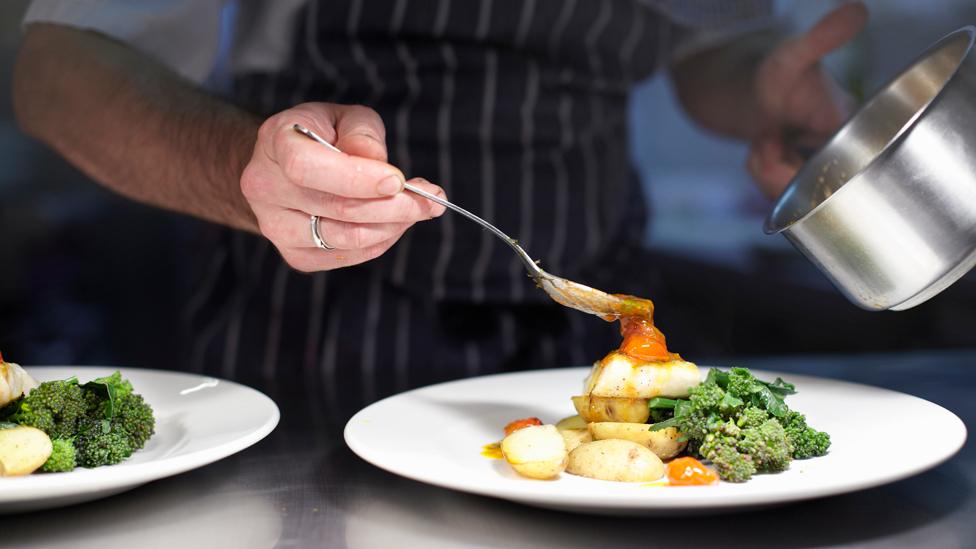Hospitality: Bullying, low pay and burn-out blamed for staff shortage
- Published
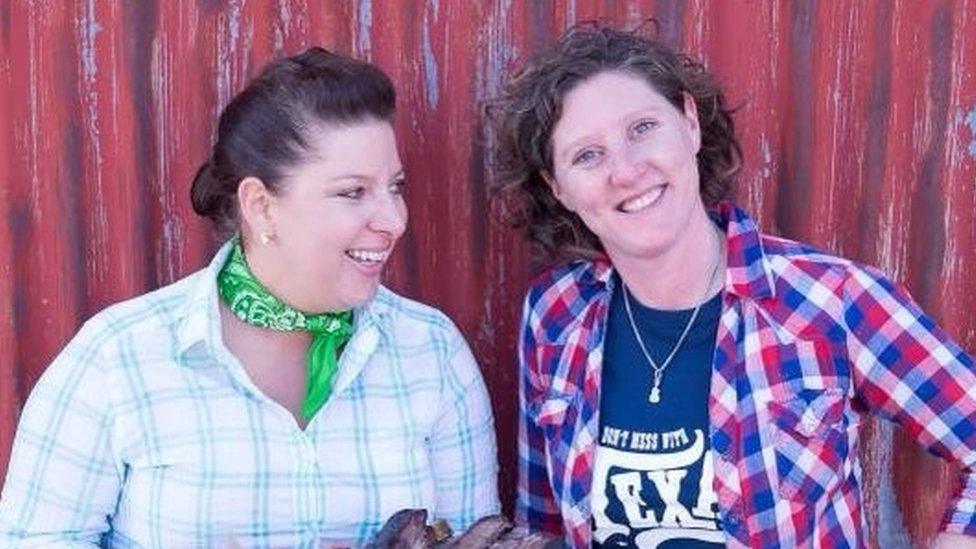
Shauna Guinn, who owns Hang Fire with her partner Sam Evans, said closing the business was "heart-breaking"
Hospitality workers have called for changes to the industry after an award-winning restaurant in south Wales closed its doors.
Shauna Guinn, co-owner of Hang Fire in Barry, Vale of Glamorgan, said the decision to close after a decade of building the business was "heart-breaking".
She blamed staff shortages and called the industry "our own worst enemy".
Others said hospitality must tackle a culture of bullying and low pay.
Ms Guinn, who owns the Hang Fire business with her partner Sam Evans, had to make 16 members of staff redundant and contact 1,300 customers to cancel their reservations last week.
"When we reopened after the second lockdown this year and we asked everybody to come back to work... [but] we pretty much lost our entire senior team of chefs" she said.
"We lost our head chef who went to work for a street-food business, we lost a head chef who went to work at home because he's got twin boys and he became a house husband, we lost another guy to a garden centre and we lost a young chef to be a Tesco delivery driver. So it's not that they left Hang Fire, they left the industry."
She said the industry was tough to work in because of long, unsociable hours, physical work and low pay.
"If you're a small, independent restaurant, trying to buy really good-quality food, pay people well to deliver it in a building that is immaculately maintained, that actually costs a lot of money," she said.
"The only way to increase people's wages in that context would be to put the prices up on the menu and at some point the customer's not going to feel that that's value for money."
Where job adverts to recruit workers at the "sought-after" restaurant used to attract hundreds of applicants, recently she had only received a handful, of varying quality, she added.

Chef Simmie Vedi said hospitality's culture of bullying and low pay needs to change
Simmie Vedi, a chef from Cardiff, said the hospitality industry as a whole had long suffered from the effects of low pay and a widespread bullying culture.
"Brexit has made it really difficult for employers to find cheap labour, which they shouldn't be doing anyway," she said.
"They need to start paying people fairly. If you're going to open up a restaurant - any business - you need to budget for paying your staff a living wage.
She added many chefs had found alternative work because "they realise they can go and do something else where it's a lot less stressful and they're not being treated badly. They're not being made to feel terrible because they can't make a creme brulee".
She said: "The shouting, screaming chef is like a caricature. There's human beings on the receiving end of that behaviour. It is humiliating, it's degrading and in any industry you should not be treated like that."
But she added that, although more closures were likely, there was hope for the industry, as some staff worked to establish a kinder and more collaborative culture.
"There are people still in the industry who are really trying to change it - a lot of amazing young chefs as well as older people who are more experienced," she said.
"I have a lot of hope for future generations to really get a handle on this because it is a process to get people out of that mindset.
"It's maybe going to be a couple of years of a transition period. But the people in the industry who are fighting for that change, I don't want them to stop fighting for it."
She added: "The pandemic has also given workers time to reflect on the important things in life.
"We were so used to a minimum 60 hours a week that it was second nature. It didn't register with us that there was something wrong with that.
"I think we just all had a bit of a break during coronavirus and we started to realise other things that we value, such as having our family time.
"My nan passed away in April and all I can do is just regret working instead of going to see her, working instead of taking any holidays.
"We want more of a balance. We want to have a life. But at the same time we don't want to be earning less. It's an incredibly hard job."
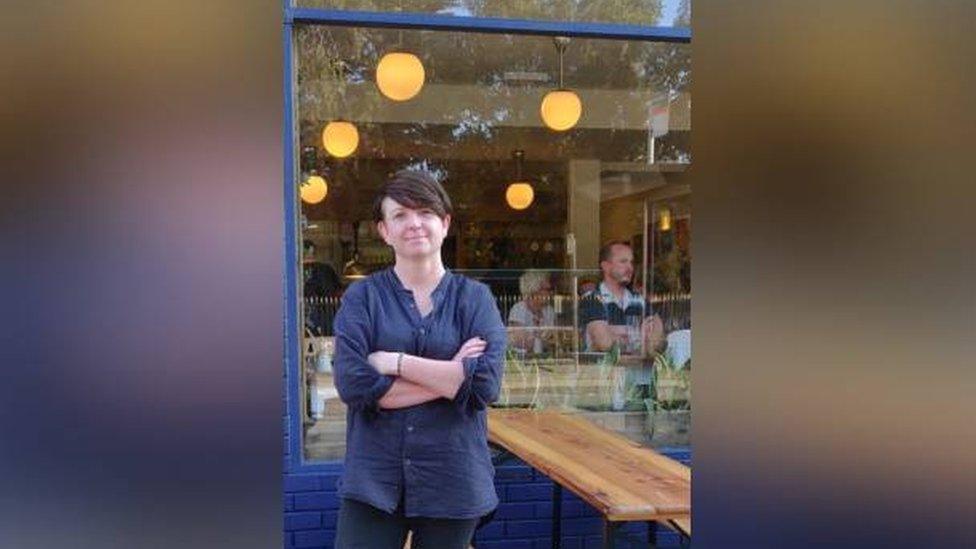
Rebecca Pout, manager of Nook restaurant, said staff were suffering from burnout
Rebecca Pout, manager of Cardiff's Nook restaurant, said treating staff well was key to stability in the team.
"It has been a rough couple of years. I've been doing this for 15 or 20 years and even I've had moments where I've thought if I want to do something else," she said.
"Personally, I think it's the best job in the world, I wouldn't want to do anything else. It's a hard job, but it is incredibly rewarding.
"In terms of retaining existing workers it's really about looking after them. We're only open five days a week so there's a guaranteed two days off, we keep people's hours to what they're comfortable with, we try to make sure everyone has a work-life balance which is incredibly important and something that's been lacking in the industry previously.
"It's about looking after the guys that we do have, fostering and nurturing our team.
"In terms of attracting new staff I think it's about using different platforms than we used to do pre-lockdown."
She added that encouraging the industry to become more respected, with customers prepared to pay more for better staff and better produce, would hugely improve the culture and quality of hospitality.
"I think the industry is looking at itself but it will take some time," she said.

ELY BREAD RIOTS 30 YEARS ON: There are two sides to every story
THE CASABLANCA: How a Cardiff nightclub changed our lives

- Published30 May 2021
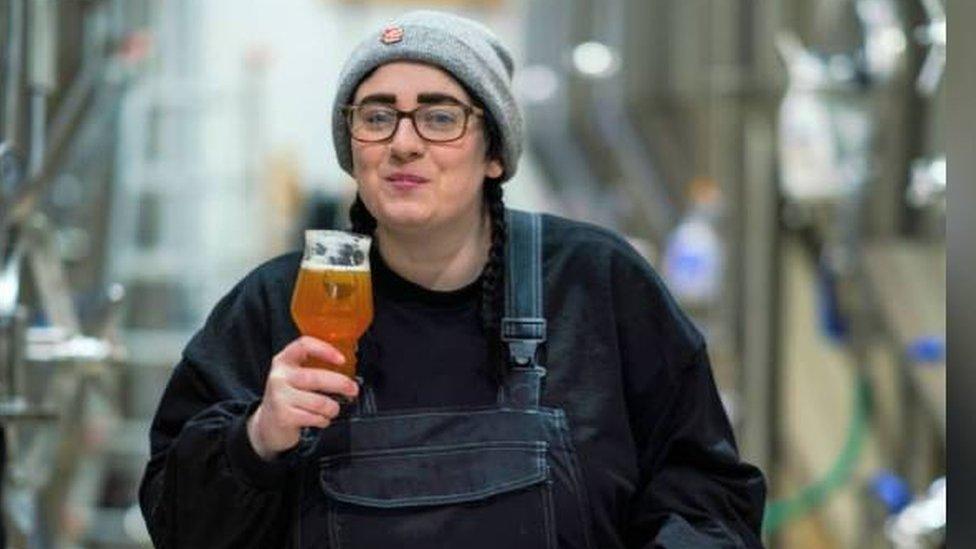
- Published25 April 2021

- Published17 August 2021
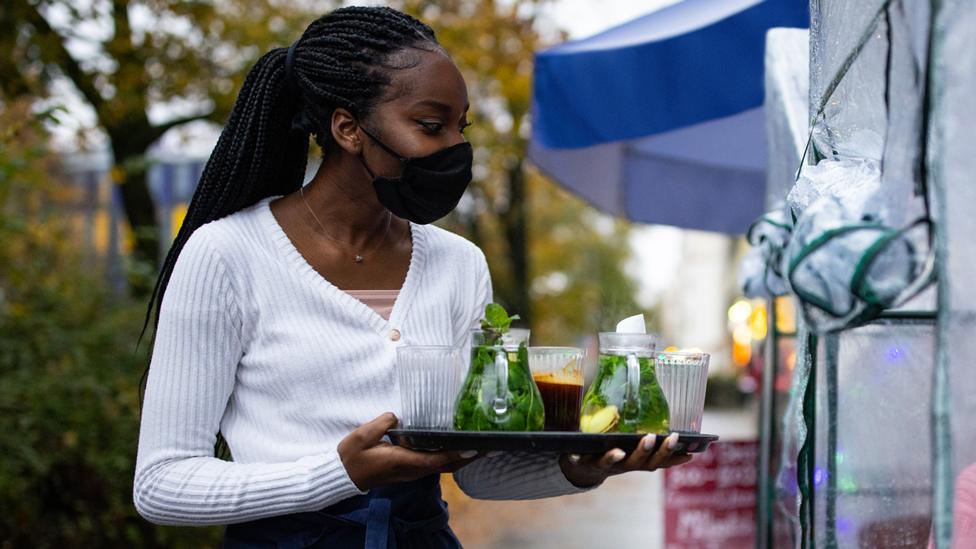
- Published13 May 2021
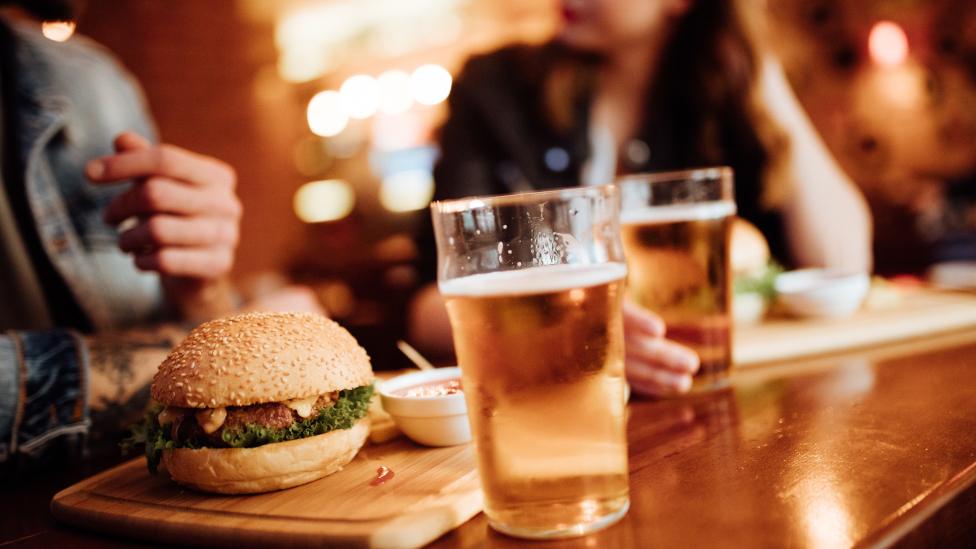
- Published26 July 2021
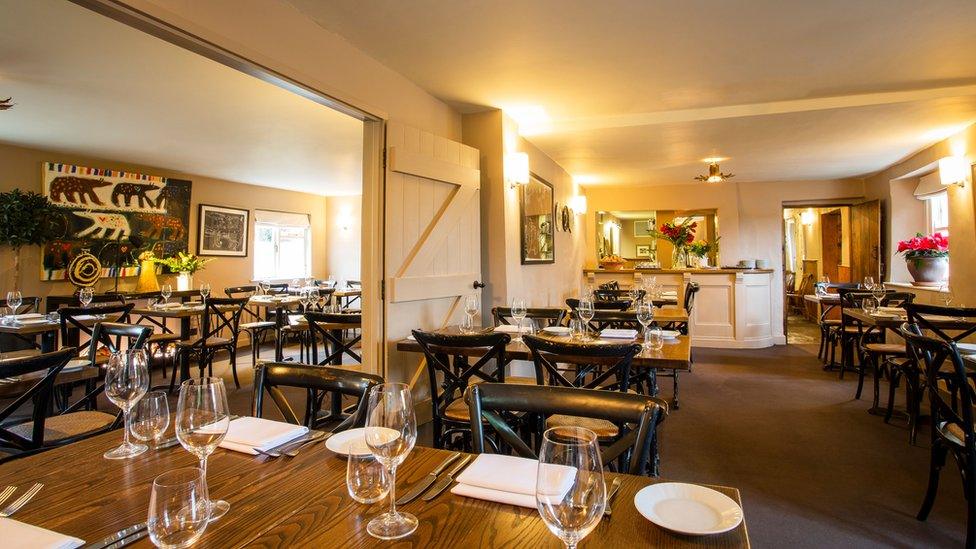
- Published20 July 2021
